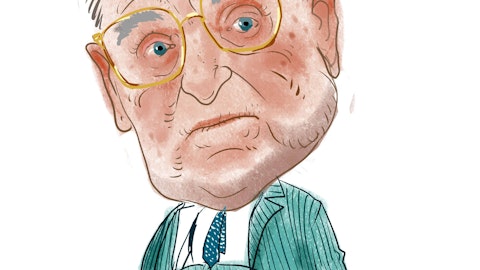Hyperinflation — to use the phrase implies a level of extremism. Hyperinflations are nasty, socially destructive phenomenons that seem reserved primarily for banana republics. Yet, as I write this, the Nikkei 225 is up about 2% on the session. Year-to-date, it’s up over 50%.
Meanwhile, the US dollar/Japanese yen exchange rate has broken definitively above 100, a level it has not maintained for long since before the economic crisis.
These extraordinary moves have been prompted by an equally extraordinary monetary policy — the Bank of Japan has set a 2% inflation target, and has vowed to hit it.
Is Japan on the verge of an economic revival? Or is disaster right around the corner?
The case for hyperinflation
Japan’s government has a debt problem. Compared to the size of its economy, Japan’s government is the most indebted in the world, with its debt-to-GDP ratio standing at over 200%, and expected to increase to 240% by next year.
For comparison, the US government has a debt-to-GDP ratio of just over 100%.

Yet, the value of the yen has stayed stable for many years; despite the fact that the math doesn’t appear to add up, bond investors have continued to lend the Japanese government money.
Japan’s debt is, in large part, owned by its own people — they have a national interest in keeping their government solvent. And, more importantly, Japanese bonds have been a pretty stable investment in recent years.
In an era of deflation (something Japan has struggled with for about two decades), a bond yielding near 0% still offers a positive real rate of return.
Kyle Bass and Takeshi Fujimaki
Some market observers have been sounding the alarm bells when it comes to Japan. Hedge fund manager Kyle Bass’ name has practically become synonymous with the East Asian nation in the investment community.
Bass believes Japan’s entire society could crumble in the coming years, and a war will break out in Asia.
That sounds like the ravings of a lunatic. But Bass can’t be so easily dismissed. He was one of the few investors to foresee the housing bubble and its resulting disastrous aftermath, and he profited big by betting against US mortgages with his fund.
Bass points out that, by setting a positive inflation target, the Bank of Japan has removed an incentive to own a Japanese government bond. A bond yielding 0% is a good investment in a deflationary environment; it is a guaranteed loser in an inflationary one.
What’s more, Japan is one of the oldest and least fertile societies on earth — its people are aging and entering retirement in increasing numbers. To finance their retirement, many Japanese will have no choice but to sell their bonds, further hurting the market.
If bond yields spike, Japan will be forced to print yen to keep rates low, leading to further debasement of the yen, leading to the need to print more. That’s a dangerous cycle that will result in a hyperinflation.
Former Japanese adviser to famed hedge fund manager George Soros, Takeshi Fujimaki, echoed Bass’ sentiments in an interview with Bloomberg. Fujimaki told the news service that the Bank of Japan’s reckless policy will lead the country to default or experience hyperinflation.
Despite the recent rally, he sold his holdings of Japanese stocks.
Bass believes investors would be wise to do the same. He’s characterized buyers of Japanese equities as “macro tourists” and has warned that things will end badly for the Japanese market.
The iShares MSCI Japan Index has rallied nearly 26% this year. It holds a number of major Japanese stocks, such as Toyota Motor Corporation (ADR) (NYSE:TM), Komatsu and Panasonic. Although it has underperformed the actual Nikkei index, EWJ could be a way for retail investors in the US to get exposure to a broad basket of Japanese stocks.
Similar plans can be made on Japan’s currency the yen. Without dipping into the currency market directly, an investor could buy ProShares UltraShort Yen ETF. It’s up better than 36% in 2012, and should continue to perform well if the yen moves lower.
The Japanese bull case
Of course, the view that Japan is on the verge of economic suicide remains the minority position. On the other side, the champions of Japan’s current policy tout it as a necessary step in alleviating the country’s economic problems.
Stanley Druckenmiller also used to work for Soros, but he doesn’t agree with Fujimaki. Rather, he sees Japan’s new policy as leading to the beginning of an 18-month Japanese bull run, one which will take Japanese equities much higher.
Dan Loeb, too, is a fan of Japan. In an April letter to investors, Loeb’s Third Point remarked that the shift in Japanese policies had brought about a new paradigm, and that it taken significant stakes in individual Japanese stocks.
One of those stocks proved to be Sony Corporation (ADR) (NYSE:SNE), a company Loeb is now trying to reform. Loeb’s plan, which calls for the partial spin off of Sony’s entertainment assets, would create a Sony more wholly focused on electronics.


